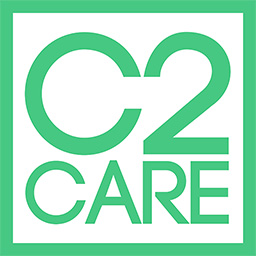The drug route
In France, anxiety disorders are very frequently found in the general population. One third to one quarter of adults take anxiolytics (drugs used against anxiety). It is very easy to obtain them without a medical prescription. This is why they are the most widely used. Nevertheless, many studies by specialists have been carried out because of the public health issues they raise.

A so-called “psychogenic” illness does not necessarily entail the need for treatment, whether psychotherapeutic or medicinal
First and foremost, you must take into account your perception of your own behaviour. If you consider your phobia to be a slight or even moderate handicap, but it does not significantly impact your daily life and you feel comfortable enough to live with it, psychotherapy is not necessarily necessary. However, if you experience stress, anxiety or panic attacks at times, a doctor may prescribe medication to help you quickly get through difficult situations. These treatments are very varied, depending on the intensity and form of your anxiety. Only a health professional, like a psychiatrist (to be distinguished from the psychologist) will be able to assess your symptoms before referring you to a suitable treatment.
You should already know that drug treatments have not been shown to be effective for the treatment of so-called specific phobias (fear of animals, fear of heights, fear of driving, etc.). Numerous studies have shown that cognitive and behavioural therapies (CBT) are a first choice treatment for these phobias. The drug solution is effective when individuals suffer from panic attacks and particularly social phobia. As you can see, medication is an immediate support to reduce the symptoms. The therapy will allow to work on these symptoms, the understanding of these last ones and the extinction of the origin of these symptoms.
Prescription of antidepressants
In addition to anxiolytics, a doctor may prescribe antidepressants for social phobia, especially when it has a significant impact on the patient’s social and professional life. Therefore, do not be surprised to find antidepressants in your prescription to treat your phobias. These are used to treat depression and mood disorders. They are brain activators, stimulating alertness. As well as helping to relieve depression, antidepressants have shown therapeutic benefits in other disorders such as panic attacks, obsessive-compulsive disorder (OCD) and eating disorders. In particular, the so-called “tricyclic” antidepressants and “MAOIs” (Monoamine Oxidase Inhibitors) are prescribed for agoraphobia and social phobia when these strongly interfere with social or professional life. These antidepressants are effective in relieving the symptoms (dizziness, rapid heartbeat, excessive sweating, choking, etc.) present in panic anxiety.
Chronic (or anticipatory) anxiety
Chronic (or anticipatory) anxiety, on the other hand, is the fear of triggering panic anxiety. The manifestations are different and appear more in the form of tension, fatigue, concentration problems, etc. Chronic anxiety disorders are much less sensitive to these antidepressants. Medication treatment here is based more on benzodiazepines which are anxiolytics (tranquillisers). Unlike antidepressants, they can only provide a temporary response to an emergency situation. For example, a person who has to fly but has a phobia of flying may take an anti-anxiety drug to calm him or her during the flight. Thus, these anxiolytics are only preferred as a temporary solution. Taken alone, they will not solve the cause of the anxiety. Be careful, however, as the effectiveness of this treatment is more variable and some individuals may be at risk of developing a psychological or physical dependence.
Side effects and drug withdrawal
As with any drug treatment, antidepressants and anti-anxiety drugs can have unwanted side effects. The side effects will vary depending on the type of medication taken. The most common side effects are drowsiness, weight changes (weight gain or loss), decreased libido, constipation, etc.
If you want to stop taking an antidepressant or an anxiolytic, it is important to ask your doctor for advice. Together, you can see if this is the best time to stop, and you can do so gradually. The treatment will not be stopped all at once, but will be done gradually in order to adapt to the symptoms experienced as they diminish.
Moreover, anxiolytics can lead to a certain dependence within a few months. Thus, during withdrawal, various symptoms may appear and require a little more support.
The drug treatment is a help for the phobia, but in no case a long-term treatment or one that will solve the phobia. Psychotherapy is necessary to reduce and eliminate the symptoms of a phobia.


